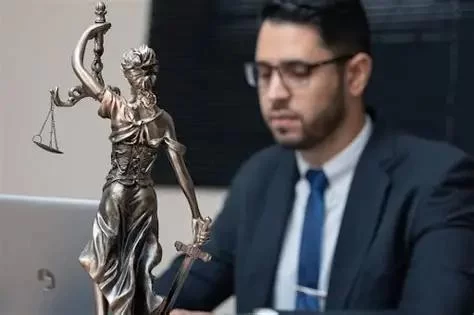- what-is-a-power-of-attorney-and-how-does-it-work
- why-you-might-need-a-power-of-attorney
- types-of-power-of-attorney-and-their-differences
- real-scenarios-when-a-power-of-attorney-made-the-difference
- how-fred-miller-lawyer-can-help-you-make-the-right-choice
1. What Is a Power of Attorney and How Does It Work?
A Power of Attorney (POA) is a legal document that allows someone — called an “agent” or “attorney-in-fact” — to act on behalf of another person, known as the “principal.” The powers granted can be broad or narrow, and the arrangement can be temporary or ongoing. It becomes a legal way to ensure that someone you trust can make important decisions if you're unable to do so yourself.
At its core, a POA is about trust. Whether it’s managing bank accounts, making healthcare decisions, or handling property matters, a POA ensures your voice is still heard — even if you're not able to speak it directly.
The authority begins either immediately upon signing or under specific conditions — such as if the principal becomes mentally incapacitated. Once in place, it serves as a legal safety net for managing crucial aspects of life with clarity and accountability.
2. Why You Might Need a Power of Attorney
2.1 Planning for the Unexpected
Life can change in an instant. Accidents, illness, or even travel can prevent you from managing your own affairs. With a power of attorney in place, you’re ensuring that someone trusted can step in to handle your responsibilities — from paying bills to discussing treatment options with doctors.
2.2 Supporting Aging Parents or Family Members
For adult children caring for elderly parents, having a POA allows you to assist with finances or healthcare decisions legally. Without one, even simple tasks like accessing a parent’s bank account or speaking with their insurer could become impossible without going through expensive court proceedings.
2.3 Protecting Your Business or Assets
Entrepreneurs and property owners often use POAs to authorize partners or family members to act on their behalf. This ensures continuity if they’re suddenly unavailable. A POA isn’t just for seniors — it’s a smart move for anyone with obligations that shouldn’t stall in their absence.
3. Types of Power of Attorney and Their Differences
3.1 General Power of Attorney
This grants broad powers to the agent — including financial, legal, and property decisions. It’s often used for temporary needs, such as when traveling overseas for an extended period. However, it becomes invalid if the principal becomes mentally incapacitated.
3.2 Durable Power of Attorney
Unlike the general POA, this remains effective even if the principal loses mental capacity. It’s commonly used in estate planning to ensure someone can step in if the principal becomes ill, suffers dementia, or is otherwise incapacitated.
3.3 Medical (Healthcare) Power of Attorney
This authorizes your agent to make medical decisions on your behalf if you're unconscious or unable to express your wishes. It often works alongside a living will and is a critical component of end-of-life planning.
3.4 Limited (Special) Power of Attorney
This grants the agent authority to act in a specific situation — such as signing documents for a real estate transaction — and typically ends once that task is complete.
4. Real Scenarios When a Power of Attorney Made the Difference
4.1 The Unexpected Stroke
In one notable case, a 52-year-old teacher suffered a stroke while on vacation. Because she had a durable power of attorney in place, her sister was able to immediately handle her insurance claims, hospital paperwork, and ongoing home care arrangements. Without that document, her family would have faced weeks of red tape during a medical emergency.
4.2 Business Owner Abroad
A Melbourne-based business owner had to relocate overseas for six months. By assigning his operations manager as his agent under a general POA, he ensured payroll, vendor contracts, and customer relations continued without disruption. It kept his company running smoothly, even across continents.
4.3 Family Disputes Avoided
An elderly man in his late 80s, concerned about rising tensions between his children, created a healthcare POA naming a neutral family friend. When he was later hospitalized, this prevented conflict between siblings and ensured decisions were made calmly and objectively.
5. How Fred Miller Lawyer Can Help You Make the Right Choice
Setting up a power of attorney isn’t just filling out a form — it requires thought, legal precision, and an understanding of your unique situation. At Fred Miller Lawyer, we guide clients through every step of the POA process, from choosing the right type of authority to drafting clear and enforceable documents.
We offer advice tailored to individuals, families, and business owners alike, ensuring your power of attorney reflects your intentions, protects your assets, and offers peace of mind during uncertain times.
Visit Fred Miller Lawyer today to explore how a properly structured power of attorney can secure your future and safeguard your loved ones.


 alex borell
alex borell craig hansen lawyer
craig hansen lawyer eaker perez law
eaker perez law la century law reviews
la century law reviews mcintosh law firm
mcintosh law firm maggiano's hackensack nj 07601
maggiano's hackensack nj 07601